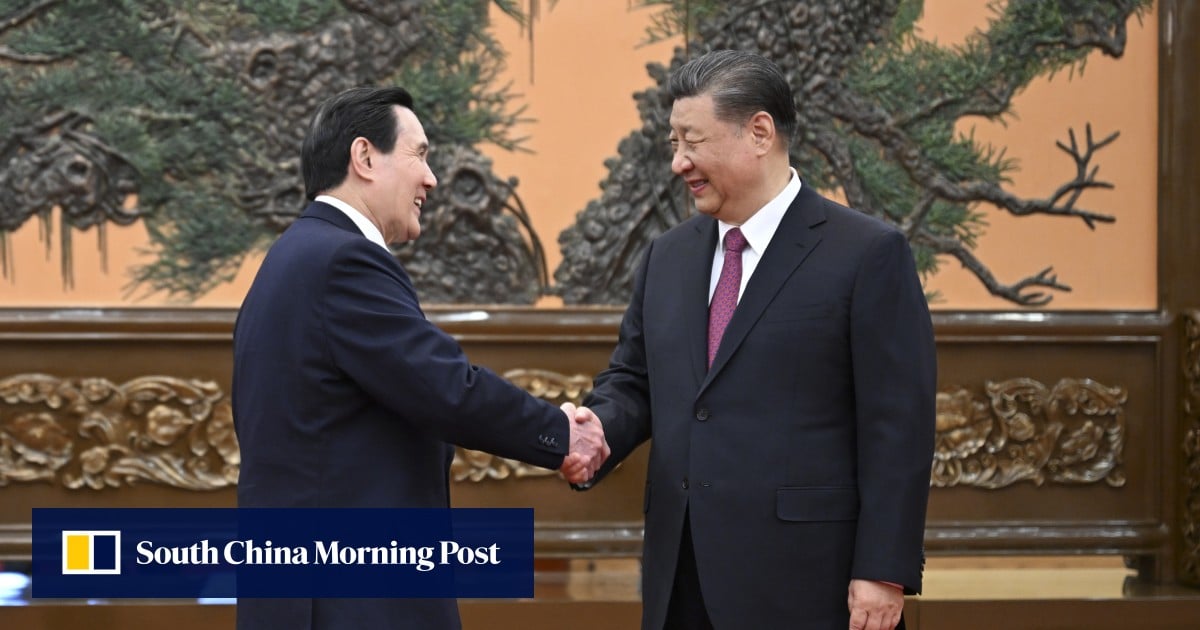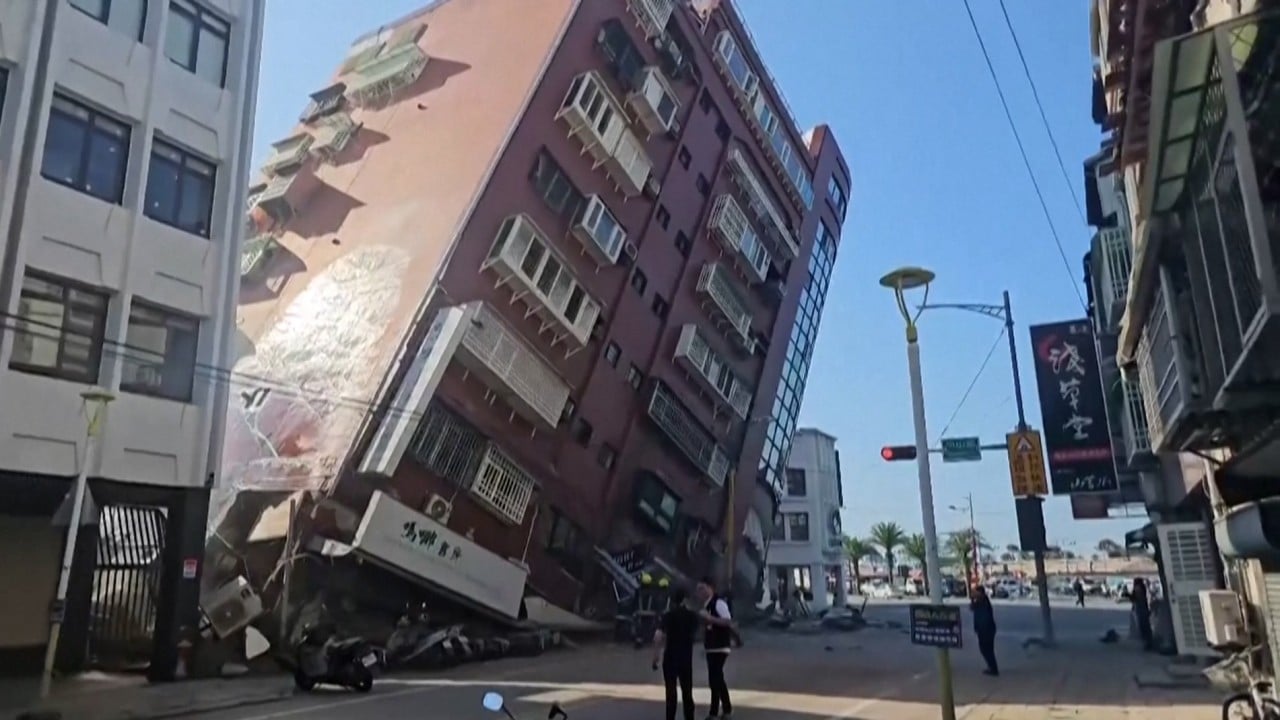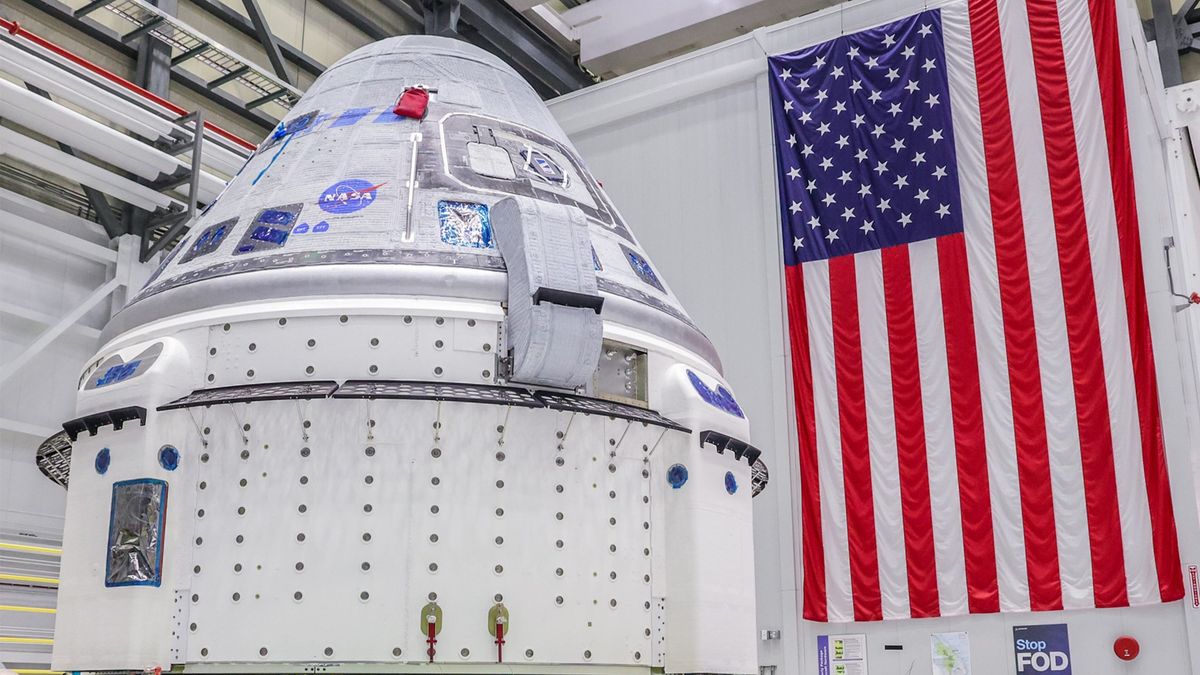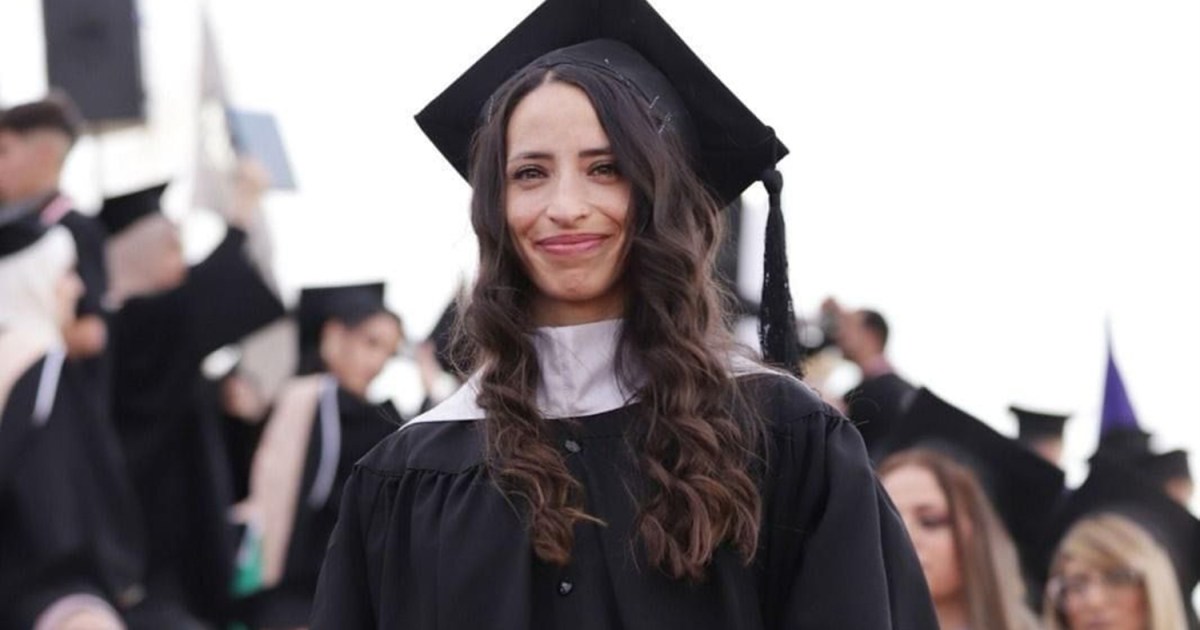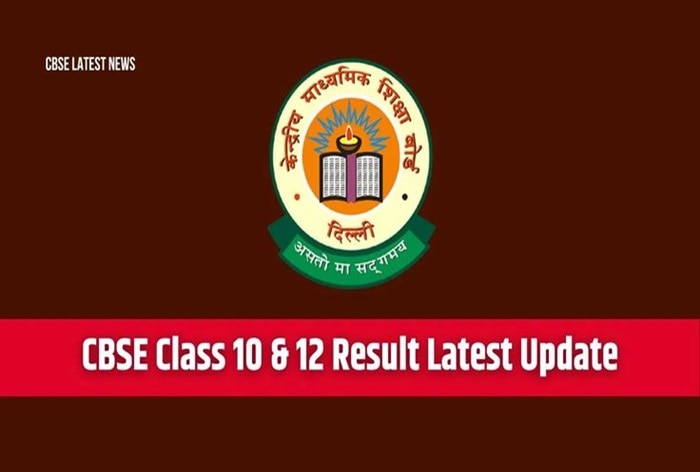In opening remarks made in the presence of the press on Wednesday, both Xi and Ma sought to strike a conciliatory tone despite prolonged cross-strait tensions.
Referring to his guest as “Mister Ma”, Xi said: “Compatriots on the two sides are both Chinese. There is no grudge that cannot be resolved. No problem that cannot be talked through. And there are no forces that can separate us.”
Xi said differences in political systems could not change the fact that the two sides were one country. “Foreign interference” cannot stop the historic trend of a “family reunion”, he said, calling on both sides to seek “peaceful reunification”.
Ma responded with a message of peace, addressing the mainland leader as “General Secretary Xi” – in a reference to his title as leader of the ruling Communist Party.
“I sincerely hope that both sides can respect the values and ways of life of their peoples,” Ma said, adding that “recent tensions between the two sides … have triggered a sense of insecurity among the public in Taiwan”.
“If there’s war, it would be unbearable to the Chinese nation, and the two sides of the [Taiwan] strait have the wisdom to handle their disputes peacefully,” he said.
Zhu Songling, a Taiwan affairs specialist at Beijing Union University, said the meeting sent “an important message from Beijing, showing its determination to solve the Taiwan issue peacefully”.
It came at a “very favourable” time for both sides to “calmly and rationally convey accurate public opinions” and carry out cross-strait dialogue, Zhu said, with Taiwan about to get a new president and Washington also seeking warmer ties with Beijing.
Arriving in the southern tech hub of Shenzhen on April 1, Ma visited several other mainland cities including Guangzhou, Zhuhai and Xian before travelling to Beijing on Sunday.
A day after his arrival last week, Ma also went to Zhongshan to visit the former residence of Sun Yat-sen, the founding father of modern China.
‘No losers in peace’: Taiwan’s Ma Ying-jeou sends anti-war message in Beijing
‘No losers in peace’: Taiwan’s Ma Ying-jeou sends anti-war message in Beijing
Beijing’s achievements should be shared by Taiwan as well, Xi told Ma on Wednesday, according to mainland state news agency Xinhua.
The mainland has “successfully embarked on a path of Chinese-style modernisation and ushered in the bright prospect of national rejuvenation”, Xinhua quoted Xi as saying. “This has not only realised the blueprint drawn up by Sun but also achieved things far beyond his imagination.”
In his use of the word “blueprint”, Xi was referring to Sun’s ambition to make China an “independent, democratic, prosperous and powerful country”, according to Beijing’s usual interpretation.
Sun, the founding father of the KMT, is also celebrated by Beijing for his role in overthrowing imperial rule.
Xi also spoke of his high hopes for youth on either side of the strait. Young people on both sides have “great potential and will definitely make great achievements”, he told Ma, who has brought with him a group of Taiwanese students on a cultural exchange trip, just as he did during his visit in March and April last year.
Taiwanese youth were welcome to “pursue, build and realise their dreams” in the mainland, Xi said, urging both sides to create better opportunities for them to “grow, excel, and succeed”.
“I hope young people on both sides of the Taiwan Strait will learn from each other, rely on each other, and walk together with one heart, relay the baton of history well, and contribute their youthful strength to the realisation of national rejuvenation,” he added.
Xi also expressed his condolences for the victims of the deadly earthquake in eastern Taiwan last Wednesday.
Ma’s visit comes amid soaring cross-strait tensions, with just over a month to go before William Lai Ching-te of the independence-leaning ruling DPP takes over as Taiwan’s president.
Lai, who serves as vice-president under the current administration, has been labelled by Beijing as a “separatist” who could bring war to the island.
But Beijing has also tried to downplay the significance of the DPP victory – as the ruling party won just 40 per cent of the presidential ballot and lost its majority in the legislature. Beijing’s Taiwan Affairs Office, the official body in charge of cross-strait matters, said the result did not represent the views of most Taiwanese.
Heightened tensions across the Taiwan Strait in recent years have rattled regional players and further complicated US-China relations, with Xi repeatedly warning US President Joe Biden that Taiwan represented a “red line” for Beijing and the “most sensitive issue” in its ties with Washington.
Beijing sees Taiwan as part of its territory awaiting reunification, by force if necessary. The United States, like most countries, does not recognise Taiwan as independent, but is opposed to any attempt to take it by force and remains committed to supplying it with weapons.
Taiwan’s KMT strengthens hand in legislature after securing speaker’s chair
Taiwan’s KMT strengthens hand in legislature after securing speaker’s chair
Ma sent out an anti-war message on Monday as he visited a museum in Beijing commemorating the second Sino-Japanese war. The lessons of history must be learned to “resolve disputes peacefully”, he said.
Cross-strait relations warmed considerably when Ma was president of Taiwan between 2008 and 2016. His meeting with Xi in Singapore had come amid rising anti-mainland sentiment in Taiwan ahead of presidential elections in January 2016. That vote was won by the DPP’s Tsai Ing-wen, who steps down in May after two terms.
Issues discussed by Xi and Ma in Singapore included the development of cross-strait relations and the “1992 consensus”.
Taiwan’s president-elect faces new era with legislature in the balance
Taiwan’s president-elect faces new era with legislature in the balance
The 1992 consensus refers to a tacit understanding reached between the Communist Party and KMT negotiators that there is only one China, but that the two sides may disagree on what that means.
In 2015, Xi described his meeting with Ma as marking “a very special day, and a new chapter in history”.
“No matter whether it be rain or storm, no power can separate us. We are brothers, and I believe the two sides have the ability and wisdom to resolve our own problems,” he said.
Ma said that “the meeting had a very friendly atmosphere. It was very positive”.
He also spoke about his impression of Xi, as “very pragmatic, flexible and frank when discussing issues”.
A cross-strait hotline was set up following their summit as a confidence-building and tension-reducing measure.
However, relations soured after Tsai came to office and refused to accept the 1992 consensus and Beijing has since suspended official exchanges with Taipei.
That both sides seek a peaceful solution was clearly evident in the conciliatory tone taken by Xi and Ma, Zhu at Beijing Union said.
“Since Ma is not in office, many of his ideas may not be implemented in concrete terms, but in general this [meeting] is still of great significance.”

